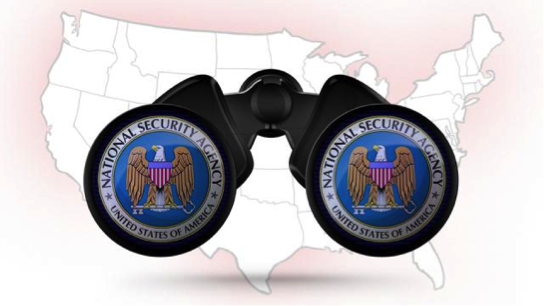NSA’s Surveillance: Constitutional or Not?

The NSA has now come under hot water for their intruding methods of surveillance
January 22, 2014
In June of 2013, Edward Snowden, a former NSA (National Security Agency) contractor, leaked confidential information on the NSA’s data collection program. The NSA was listening in on the phone conversations of millions of Americans, as well as citizens and leaders of other countries, in an effort to gain more information on potential terrorist threats. The U.S. government was listening in on virtually every telephone call to, from, or within the United States.
When people hear this controversial news, they tend to take two sides. One opinion on the matter is that Snowden is a hero, and the U.S. spying on people is unconstitutional, unethical, and disturbing. The other point of view often castigates Snowden and NSA surveillance, perforce, keep the U.S. sheltered and secure from potential threats from other countries. Since 9/11, the U.S. has been taking more caution in an effort to gain more awareness of potential threats toward our country. Has this caution turned into paranoia? Have we gone too far?
On December 16, 2013, U.S. District Judge Richard Leon ruled that the NSA violated privacy rights and the Fourth Amendment. “I cannot imagine a more ‘indiscriminate’ and ‘arbitrary invasion’ than this systematic and high-tech collection and retention of personal data on virtually every citizen for purposes of querying and analyzing it without prior judicial approval,” said Leon, an appointee of President George W. Bush. “Surely, such a program infringes on ‘that degree of privacy’ that the Founders enshrined in the Fourth Amendment.” Leon overruled the government’s argument that a 1979 Maryland case provided precedent for the constitutionality of collecting phone metadata, stating that technology has substantially advanced and the use of telephones has noticeably increased in the past 30 years. Leon also says that the NSA’s data collection has not benefited the U.S. in any way, since the government “does not cite a single instance in which analysis of the NSA’s bulk metadata collection actually stopped an imminent attack, or otherwise aided the government in achieving any objective that was time-sensitive in nature.” Those who side with Judge Leon will argue that the NSA should not be focusing on innocent Americans, but rather foreign terrorists and spies. They will also say that Snowden, who is currently living in Russia under a grant of asylum to avoid prosecution over the leaks in the U.S., is a hero because as an American citizen, it is your duty and obligation to come forward with any information on illegal actions that the government is performing secretly, especially when put in Snowden’s position—a huge blow to the Obama administration.
After this ruling, many thought this discussion was over and that it had been officially ruled unconstitutional. But then came the counter-punch. One week later, District Judge William H. Pauley III, in the case of the ACLU (American Civil Liberties Union) vs. James Clapper (the director of national intelligence). The judge sided with the federal government, agreeing to dismiss the case, saying the NSA’s surveillance was constitutional. Judge Pauley defends his decision in saying, “As the September 11th attacks demonstrate, the cost of missing such a thread can be horrific. Technology allowed Al Qaeda to operate decentralized and plot international terrorist attacks remotely. The bulky telephone metadata collection program represents the Government’s counter-punch: connecting fragmented and fleeting communications to re-construct and eliminate al-Qaeda’s terror network.” NSA defenders were jumping for joy after this ruling. Peter King, an NSA defender, said the decision “preserves a vital weapon for the United States in our war against international terrorism.” This ruling was a victory for the Obama administration after a rough patch.
So what do you think? Will the NSA’s actions ever be justified? Did the NSA violate our rights as Americans, or was this necessary to preserve the safety of our country? Constitutional or not? You think and decide.


